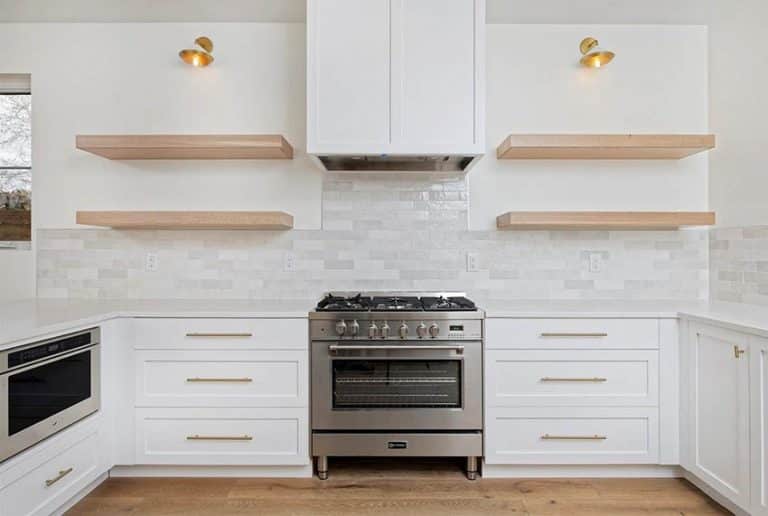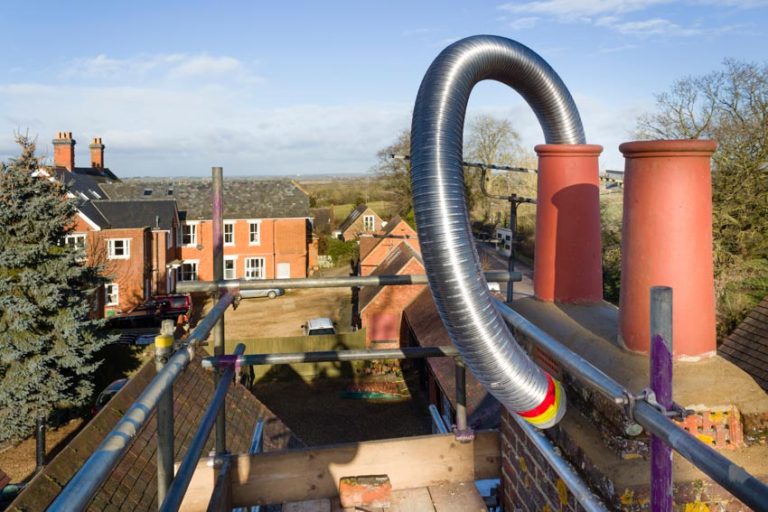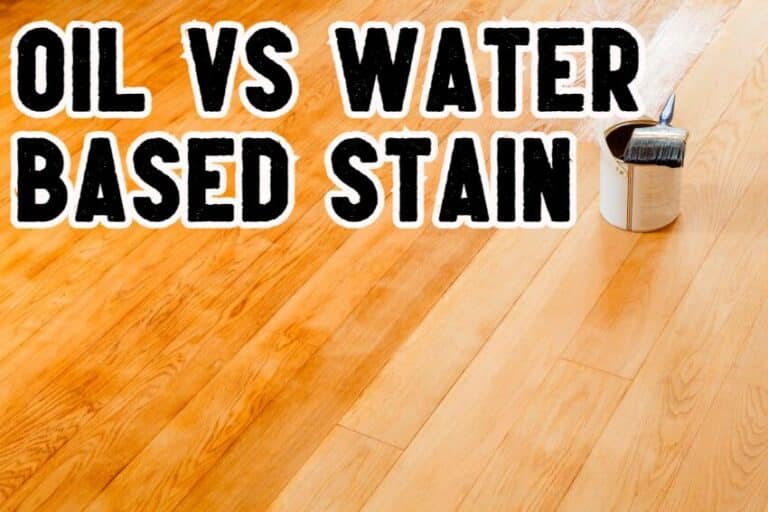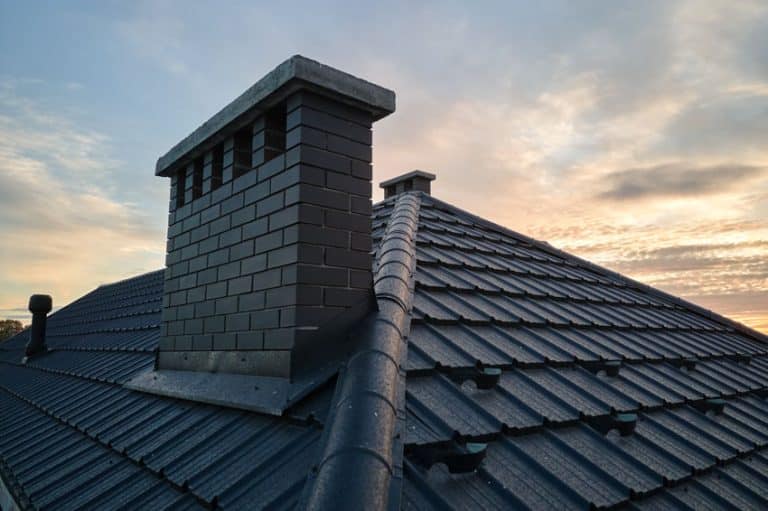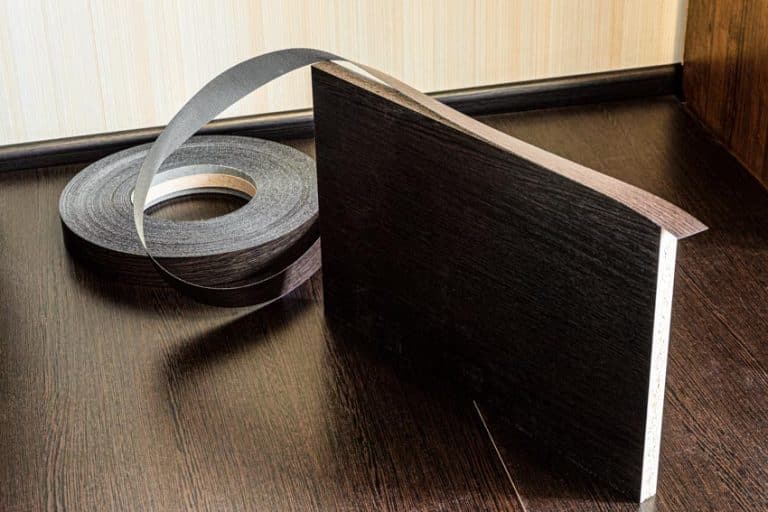Crushed Concrete Driveway Pros And Cons
For numerous homes, crushed concrete is a preferred driveway paving material. Crushed concrete, like gravel, is composed of small fragments of masonry that have been pounded or ground to make a pavement material. There are various reasons why someone would prefer to apply crushed concrete in their driveway, but there are also several reasons why it is not ideal to use.
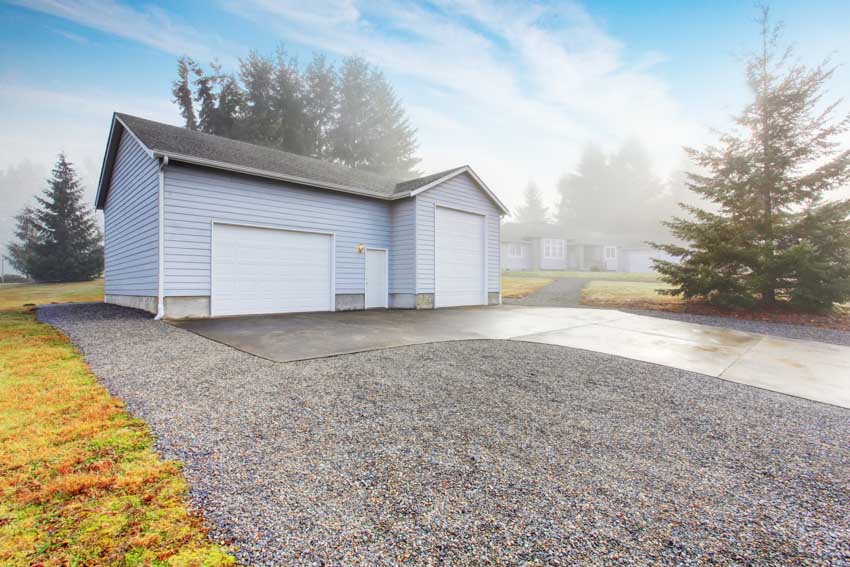
If you are curious about this popular paving option, let me show you what a crushed concrete driveway is. Let us also discuss its pros and cons.
What Is A Crushed Concrete Driveway?
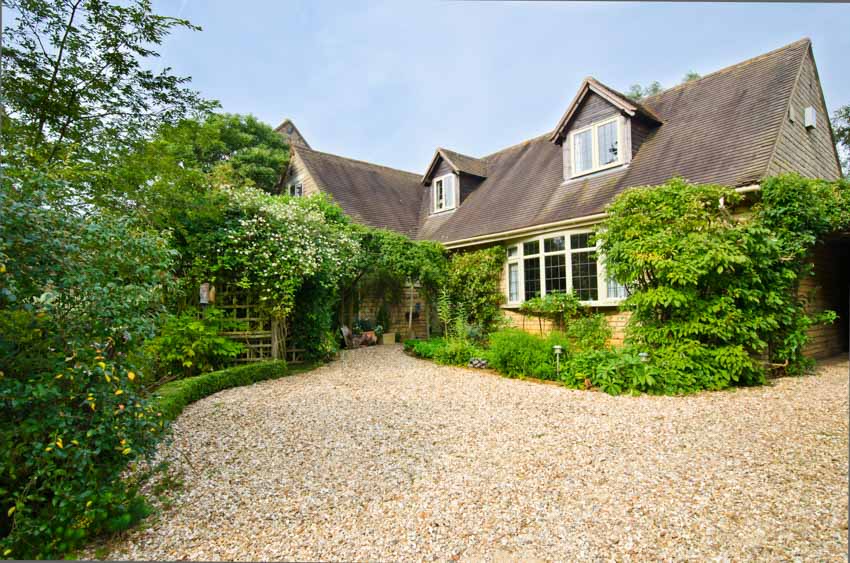
Crushed concrete is formulated from asphalt detritus from other infrastructure projects and can be repurposed to make driveways, footpaths, flower beds, and other structures. Any masonry construction, road, walkway, or parking lot that is demolished is normally thrown in a landfill.
Concrete is not biodegradable and will not degrade, thus it merely takes up space and causes environmental issues. Meanwhile, new masonry is being produced to restart the process. Fortunately, there is a solution to this wasteful and unproductive process – recycling.
Reusing crushed masonry aggregate for recycling reduces landfill overflow and prevents more commodities from being needed to make new materials. The masonry can be ground to precise specifications, cleaned to eliminate undesirable particles from the composition, and reused to solve a variety of building and landscaping issues.
Typically, crushed concrete is simply unloaded from a truck and spread over the compacted ground. After that, even large trucks can utilize the driveway; nevertheless, this brings us to what might be considered a drawback.
Even though the crushed stone types of driveways do not require costly repairs or upkeep, regular maintenance continues to remain essential.
What Does Crushed Recycled Concrete Look Like?
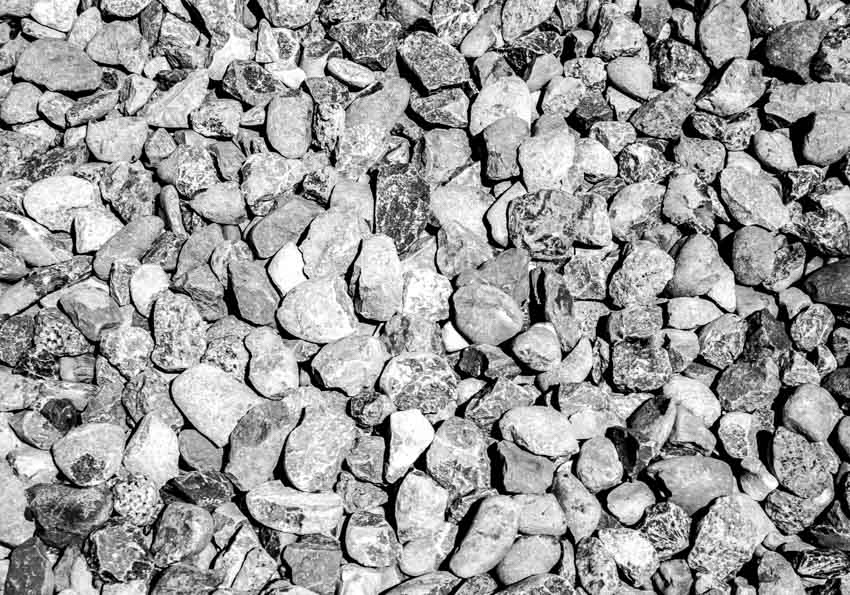
Crushed concrete is typically the recycled detritus left over when masonry constructions are demolished or repaired. They generally resemble small pieces of rock, hence they are sometimes called synthetic or replicated rocks.
These materials are often seen on driveways and walkways and are sometimes applied to enhance the flooring surface of a garden or parking lot. In some areas, the pieces of masonry do look pulverized, resembling sand.
Pros of Crushed Aggregate Concrete Driveways
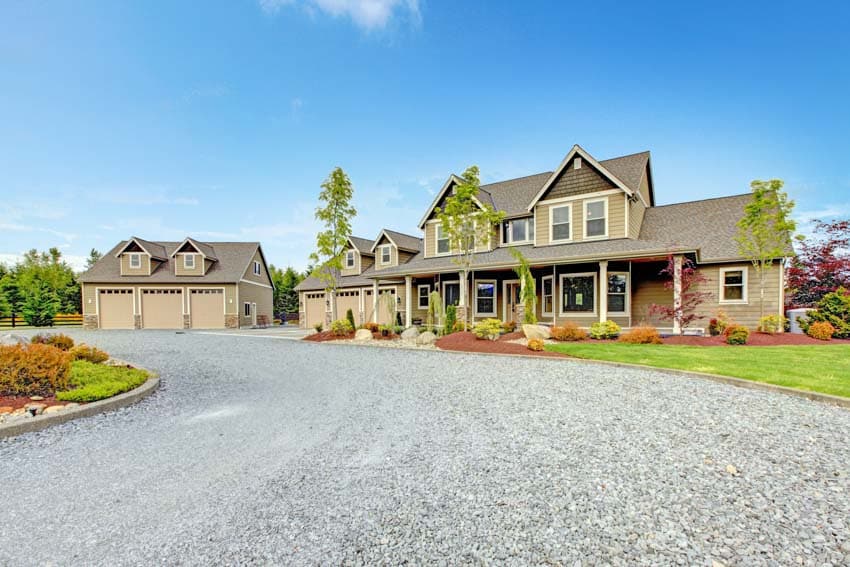
Very Affordable Cost: The greatest edge of using crushed masonry for driveways is its low cost. Because it is made from recycled materials, it is substantially less expensive than having new pavement poured. It is also far less expensive than natural stones.
Eco-Friendly: Another significant advantage of these driveways is their environmental friendliness. Utilizing this material slows the manufacture of new products while simultaneously freeing up landfill space. It keeps broken masonry from taking up too much space and redirects it to productive purposes.
Permeable and Versatile: Recycled masonry can be permeable, contingent on how it is placed. This improves storm water movement and reduces the strain on local storm systems. This material is also noted for its versatility, since it may be used in combination with various types of paving. Hence, because of this advantage, it can be excellently used for driveways.
Crushed concrete has a wide range of applications: It is utilized as a functional material by residents, builders, and landscapers not only for driveways but also for general construction projects such as establishing a base for garden beds or total development objectives.
Moreover, if you desire the appearance of natural stones or brand-new pavement, you can utilize it to lay the foundation for your driveway and then put your choice of surface materials atop. Considering how it would be designed, this employs less costly materials while still adding some permeability to your driveway.
Numerous forms of recycled aggregate are suited for a wide range of applications. Nonetheless, only 21AA, 22AA crushed concrete, and 21AA crushed asphalt, and are appropriate alternatives for driveway surfaces. There are plenty of others that can also be utilized as a sub-base.
Cons Of Crushed Aggregate Concrete For Driveways
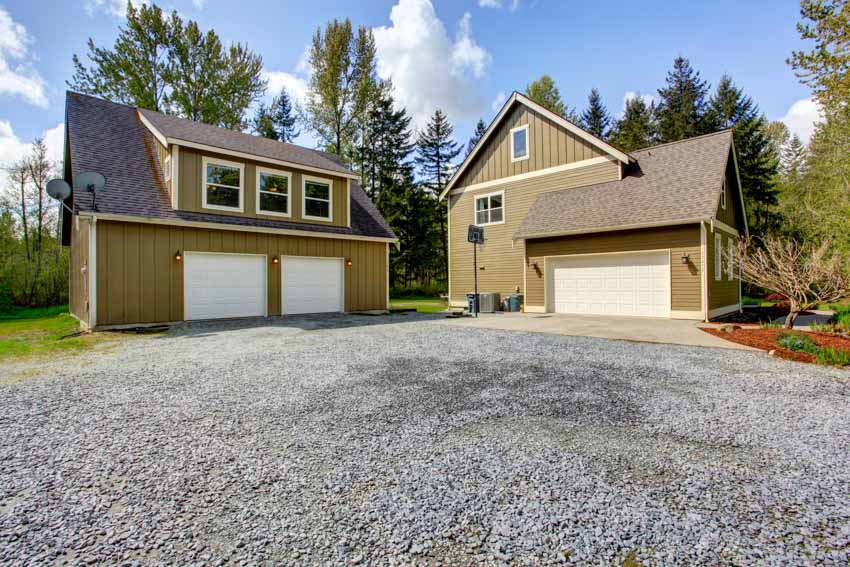
Durability Issues: Over time, you will see that crushed concrete driveways will face durability issues. Unreinforced and loose fill material has the same drawbacks as loose gravel. It distributes and thins easily, needing you to regularly add more and level out your driveway to avoid bare areas and corrugations.
It Is Hard to Find High-Quality Aggregate; Difficult to Lay: It is feasible to purchase and create your own pulverized material; unfortunately, without professional advice, it might be difficult to locate the proper kind for your task. Buying the improper size or type can lead to drainage or erosion problems.
Bulky to Work With: Crushed stone materials are also bulky and challenging to work with. Unless you are an experienced landscaper familiar with large weights and precise construction, you can hire a professional to guarantee that the task is done correctly the first time.
Easily Releases Dust: Processed masonry fragments also generate a lot of dust, which can attach to and get your vehicles dirty and dusty. The permeability of a non-stabilized fill driveway is usually significantly lower than that of a paver-stabilized driveway.
How Much Does Pulverized Concrete Cost?
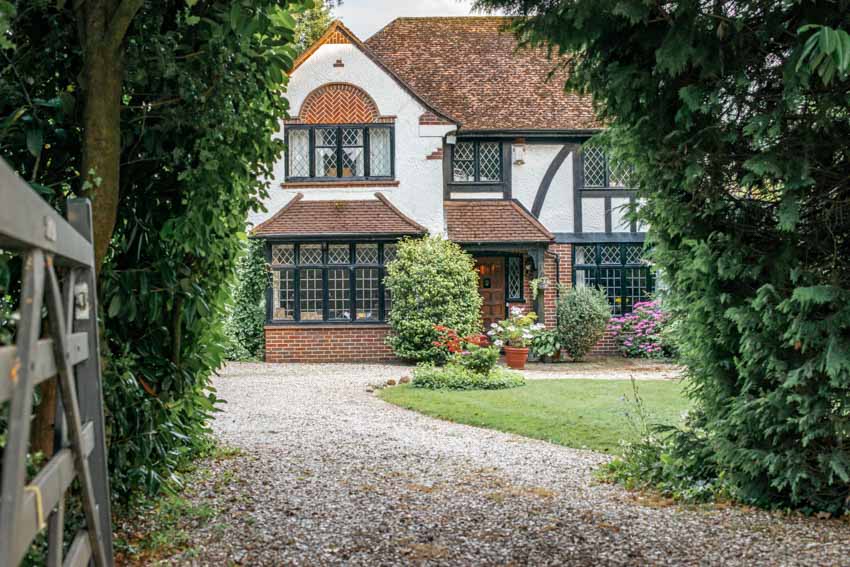
The cost of crushed concrete is often determined by the type of material purchased, economic conditions, and where it is obtained. Numerous firms will charge either by the yard or by the ton. Generally, the more you buy, the lower the charge per ton or yard.
Crushed concrete costs around $11 to $53 per ton, $16 to $75 per cubic yard, and $1 to $3 per cubic foot, but it depends on the volume.
Leftover construction site aggregate and damaged asphalt that is crushed and reused provide a less expensive and more environmentally friendly alternative for gravel roads. However, recycled aggregates have the same durability as natural stones.
Is Reclaimed Concrete Good for Driveways?
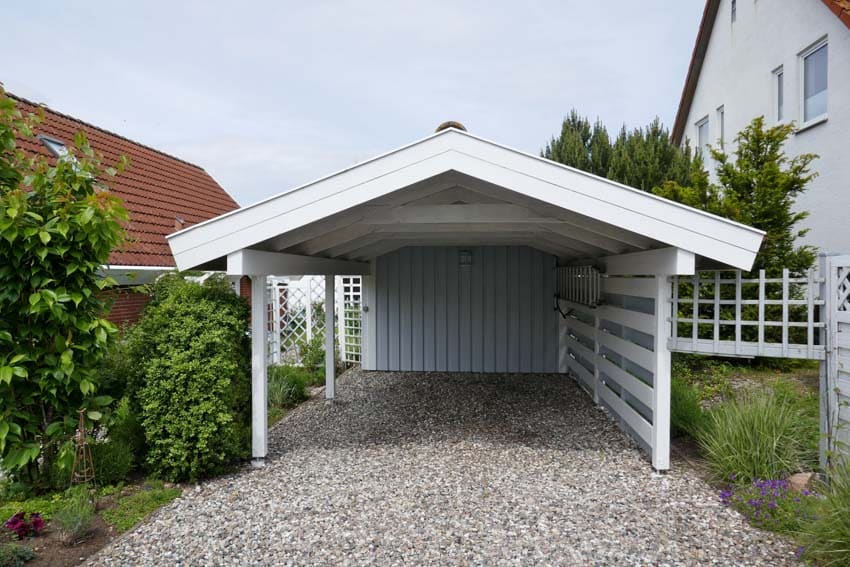
To a large extent, yes. Crushed concrete driveways are significantly less expensive than gravel driveways, traditional paved driveways, or asphalt parking areas. It is an excellent driveway material because of its low cost, long life, reduced potential for breakage, and low maintenance.
With its various advantages and applications is a very functional and readily accessible material that can be a workable alternative not only for your driveway but for many of your building or landscaping demands as well.
Crushed Fill Driveway Problems
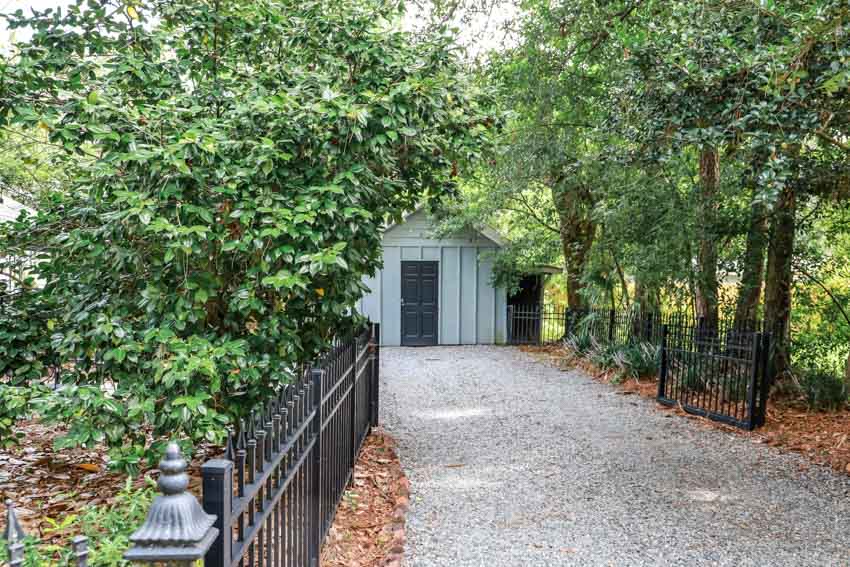
Yes, crushed fill concrete is a low-cost driveway material. On the contrary, there are restrictions and problems to be aware of. For example, if you want to have a gorgeous driveway, it is hardly your top selection due to its minimal style.
This material is best suited for rural residences. It does not appear quite as attractive as other materials used for modern driveways.
Potholes are another problem that you might need to cope with if you employ recycled aggregate fill. Potholes and ruts are a frequent issue and since it is commonly recycled, the material may not be as durable as other materials.
As a result, it is not suitable for heavy-duty applications. If your driveway receives a lot of traffic, its surface that was utilized might quickly fracture and develop potholes.
Furthermore, these aggregates inhibit water from passing through. Thus, water will puddle on the substratum of your driveway. When this happens, your driveway becomes prone to rutting. Plus, due to the irregular surface, outdoor elements like snow might be difficult to eliminate and clean. Using shovels or rollers might be difficult as well.
Concrete Aggregates Vs Gravel Driveways
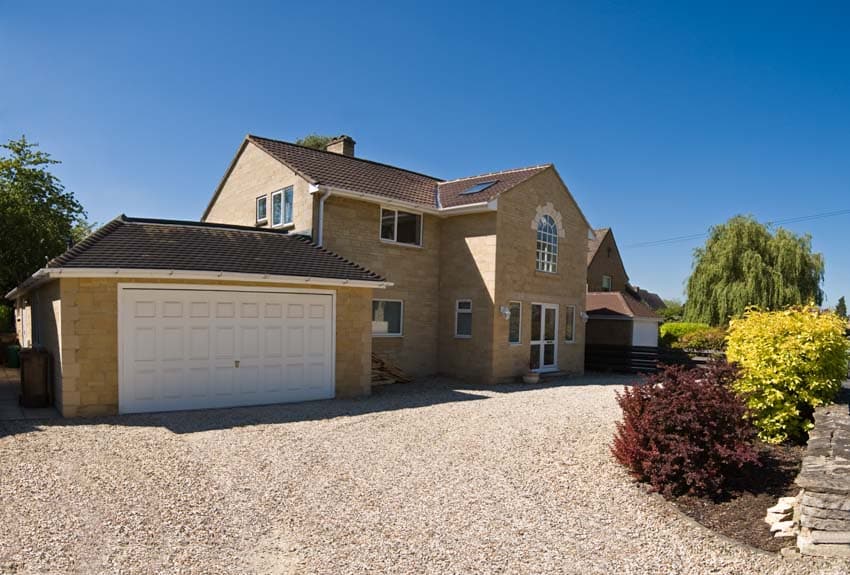
Choosing between concrete aggregate and gravel might be challenging if you are unfamiliar with the attributes that define them.
When comparing the costs of these driveway materials, you will see in the marketplace that crushed masonry is significantly less pricey than any other selection. This is one of the primary reasons why people choose this material at first. They also think that it has the advantages of sustainability, minimal maintenance over a period, and safe application for any large vehicle.
There would be no breaking or weather damage, and it is manufactured from a material that might normally end up in a landfill, contributing to waste. When both functionality and cost are considered, reused concrete always wins the contest.
Although crushed concrete requires less care, it will still necessitate a top-up of materials every one to two years. Potholes continue to form as the pieces move. Since it is often recycled broken masonry, the material may be sharper and contain other rock-like components like a brick.
Talking about gravel, you will still obtain a highly durable rock base with less upkeep at a reasonable price, albeit not as low as the alternative. However, you will still not have to fret about fractures or discoloration.
Because it is less porous than crushed concrete, it does not necessitate additional drainage to cope with run-off and surface water during heavy rainfalls. Furthermore, if you prefer the concept of being able to choose from a variety of colors, gravel might be a superior alternative.
Although it is low-maintenance, supplemental gravel must be added every several years. Gravel is often finer and thus can be left almost everywhere. You have to rake it on a regular schedule to keep it out of your lawn and balance out the surface area. Moreover, as previously stated, it is not as inexpensive as practically any recycled masonry aggregate on the market.
See more related content in our article about a heated driveway on this page.

